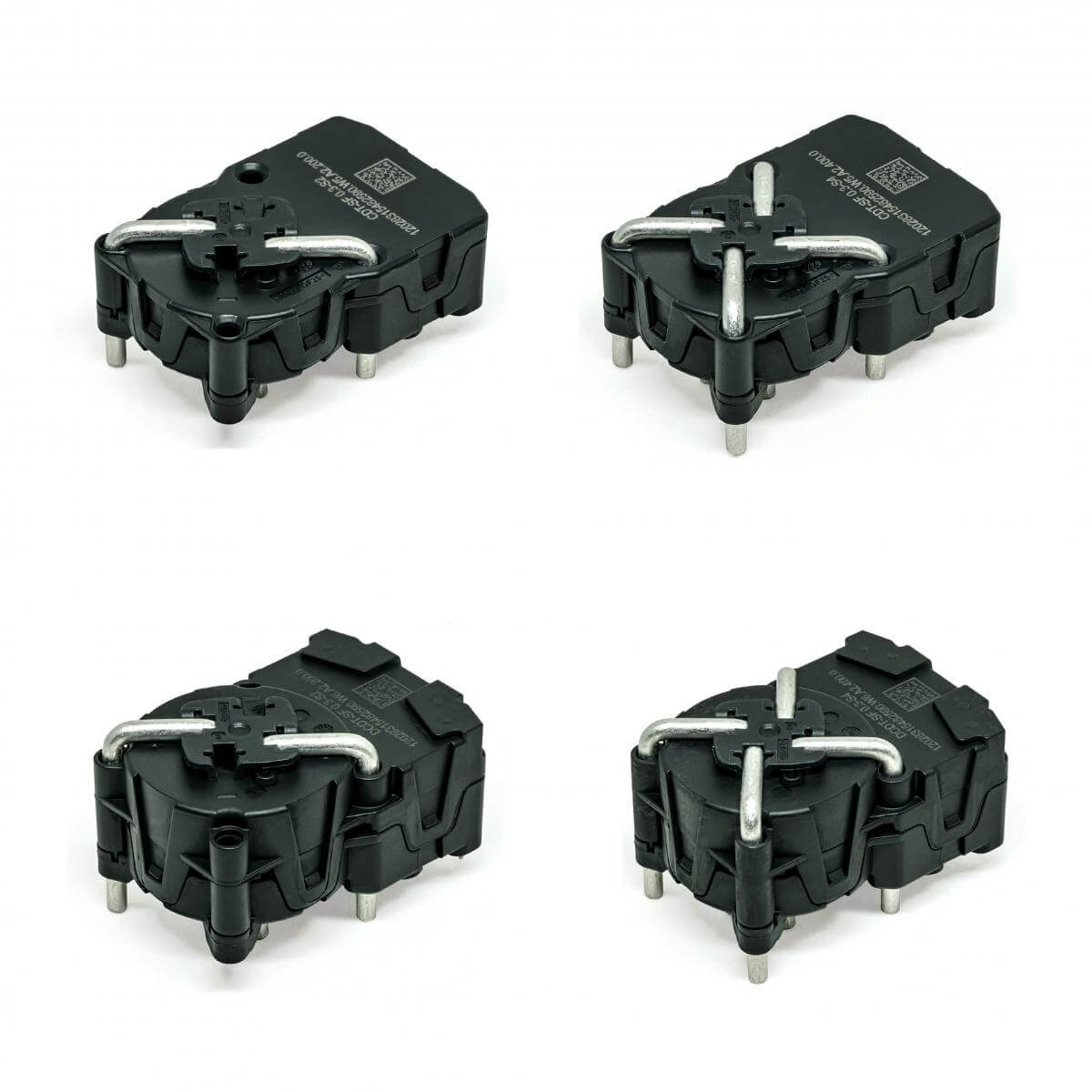LEM launches 1st automotive-grade RCM sensor for bi-directional OBC
New CDT sensor ensures performance and safety compliance with ISO5474 Part 2 standard for AC power transfer.
The Growing Importance of Bi-Directional On-Board Chargers
In recent years there has been significant growth in the use of bi-directional on-board chargers (OBCs) because they allow the end-user to use the battery pack in their car to feed another vehicle, an electrical appliance or even their home. However, because they are bi-directional, the OBCs present a number of safety challenges.
Designers have to consider high voltage safety, specifically leakage monitoring and compensation, while also looking to reduce weight, improve efficiency and cut costs in bi-directional OBCs. The solution is an RCM type B automotive sensor that complies with all the relevant safety standards, and it is called CDT.
Meeting Safety Standards with LEM’s New CDT sensors

The new CDT sensor takes away the worries of designing-in solutions within constrained automotive environments while also speeding up design architecture by being ISO26262 Automotive Safety Integrity Level B (ASIL B) ready.
More importantly, the new automotive grade residual current monitoring (RCM) type B sensor is leading the way in this rapidly developing sector by enabling designers to react quickly to the new ISO5474 Part 2 standard for AC power transfer. The standard focuses on electrically propelled road vehicles and outlines the functional and safety requirements for power transfer between the vehicle and an external electric circuit using AC. Part of a series that operates in conjunction with ISO5474 Part 1, the new standard covers conductive charging requirements for modes 2 and 3 according to IEC 61851-1, reverse power transfer through on-board standard socket-outlets or EV plugs, and voltages up to 1000V AC.
By being able to meet a number of EV system engineers’ challenges in a single unit, the new sensor is ideally suited to use with bi-directional OBCs that allow vehicle-to-everything (V2X) applications. This includes vehicle-to-load (V2L, powering external devices), vehicle-to-grid (V2G, supplying energy to the grid), and vehicle-to-vehicle (V2V, enabling communication between vehicles).
Advanced Features and Technology of LEM’s CDT Sensor
The new CDT detects differences in current between two points, identifying such faults as short circuits and enabling rapid isolation of faulty sections to prevent damage. LEM’s new CDT current sensor has been designed to represent the perfect match for RCM type B for bi-directional OBCs, where residual currents are detected and monitored, including AC and DC leakage currents.
This type of Residual Current Monitoring is ideal for complex electrical systems, especially those found in EVs with DC components, and is capable of detecting potentially hazardous leakage currents.
With a bi-directional OBC, if the DC fault current is greater than 6mA, there is the potential to compromise the detection and tripping capabilities of a Type A RCD, which could increase the risk of electric shock. Only a type B RCM can measure and detect AC and smooth DC. The new CDT sensor has been designed to meet this demand by combining best-in-class automotive grade with an unprecedented level of accuracy of ± 0.5 mA @ 5 mA, thanks to LEM’s multi-patented fluxgate technology.
Fluxgate is ideal where highly precise magnetic field measurements are required, with fluxgate sensors extremely sensitive and capable of detecting very small magnetic fields. They also offer accurate measurements of DC and low-frequency AC magnetic fields and ensure stable measurements over a range of temperatures and environmental conditions.
Other features specific to LEM’s latest sensor include advanced functions on the secured Serial Peripheral Interface (SPI) bus including dynamic fault selection, monitoring of T°C, leakage value and supply monitoring (a secured bus ensures encrypted and authenticated data transmission between devices). Additional features include advanced diagnostic functions and the ability to work equally effectively with single-phase and 3-phase AC.
Ensuring Safety and Compliance in V2X Applications
Clément Amilien, LEM’s Head of Global Product Management Automotive, says:
“The new ISO5474 Part 2 standard for AC power transfer relates to using an EV as an AC energy source. This means it is essential to have the capability of monitoring leakage currents in vehicles. The standard also dictates that V2L applications require safety protection for socket outlet usage through RCM. Our new CDT sensor has been designed to ensure safety for V2X functions with automotive ready RCM type B. It has an ASIL B ready option and is intended to satisfy all EV system designers’ OBC challenges in a single, easy to design-in package. This new sensor will help them to accelerate their time to market while complying with all security and safety regulations for V2X applications.”
Motor control, Battery Management Systems, Residual Current Monitoring, LEM will showcase its portfolio for automotive at Electronica in Munich, from Nov.12 to 15, hall B3, Booth 441.